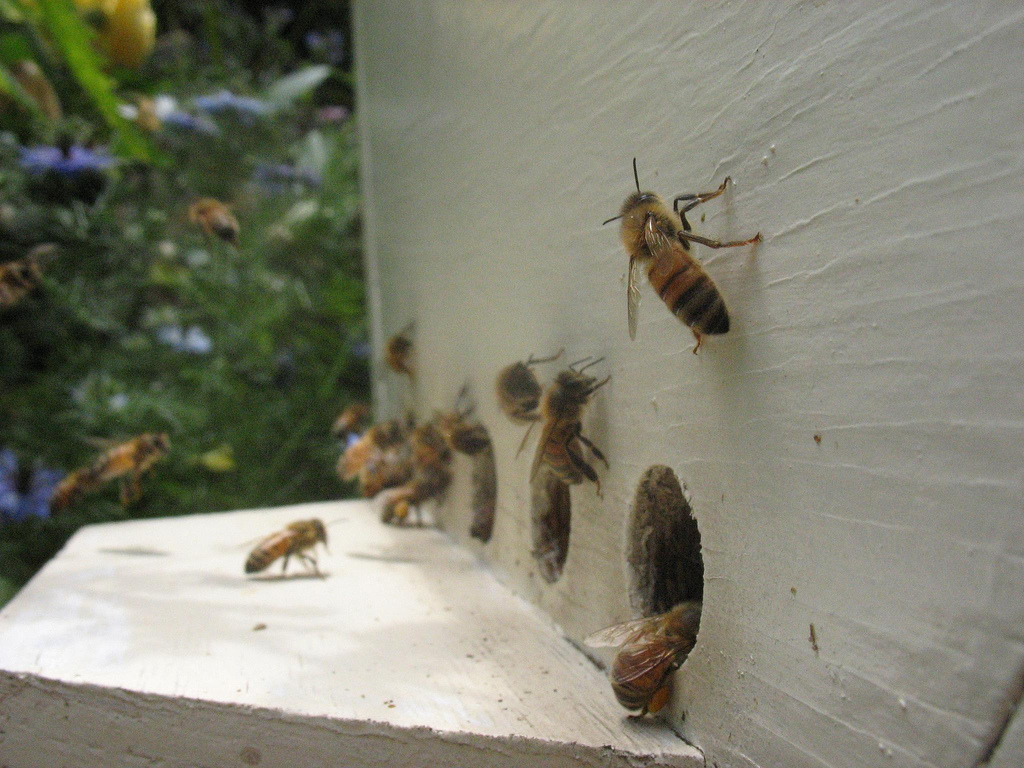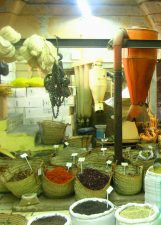 The Honey Council, Hive Thievery and Bee Ecology education in Arabic: In Israel and Lebanon, honey is both a problem and a solution. Image via orinrobertjohn
The Honey Council, Hive Thievery and Bee Ecology education in Arabic: In Israel and Lebanon, honey is both a problem and a solution. Image via orinrobertjohn
Archeologists have uncovered beehives in northern Israel that date back 3 000 years. A courtyard in the ancient city of Rehov was home to bees producing honey in at least 30, possibly as many as 100, hives. The discovery firmly establishes the fact that beekeeping was known and practiced here in the Middle East since Biblical times. Honey and beeswax, precious commodities then, are still valuable crops. You would think that everyone’s gotten used to the routine by now.
Yet the word “honey” leaves a bitter taste in many Israeli mouths. The Israel Honey Council backs claims made by beekeepers who say that thieves carry night-time raids on unguarded orchards, stealing hundreds of hives yearly and selling them to contacts in Palestinian Authority territory.
Local courts take hive theft lightly, often releasing thieves the same day they’re arrested. The Honey Council’s deputy manager, Shimon Erlinger, told Green Prophet:
“The courts don’t understand the consequences of hive theft. It’s not only the farmer who suffers loss. Fruit crops diminish when the trees aren’t pollinated. Avocados, for example, depend entirely on pollination. No bees, no fruit.”
It seems that some judges need to become educated in the importance of bees to the ecology.
In Lebanon, though, honey and beekeeping are a positive note. The Daily Star reports that children in ten Lebanese schools study the importance of honey and beekeeping for the environment and the economy.
The project is sponsored by the Lebanese Association for Forests, Development and Conservation. In another progressive step, the Unity and Co-operation for the Development of Peoples organization from Italy hopes to launch a project to educate Lebanese farmers and beekeepers about the harm done to bees by pesticides.
Sustainable agriculture and conservation in the Middle East. In Hebrew, in Arabic. It takes educating adults and children to make it happen.
More on honey and bees:
Urban Beekeeping Keeps NYC Green
An Israeli Cure for Bee-Colony Virus



